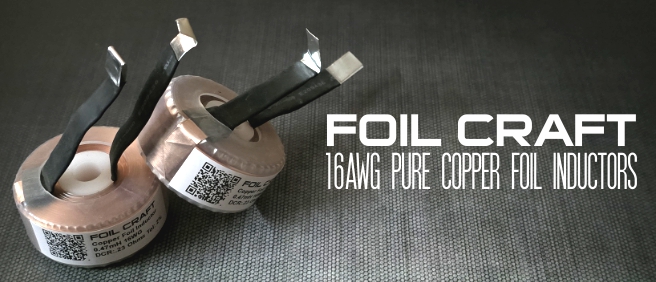Copper foil inductors are often used in speaker crossover networks due to their unique properties that provide several benefits over traditional wire-wound inductors. Here are the key advantages:
Lower Resistance: Copper foil inductors have a lower DC resistance compared to wire-wound inductors. This results in more efficient signal transfer and less power loss, which is crucial for maintaining signal integrity and achieving high-fidelity sound reproduction.
Reduced Skin Effect: The skin effect, where high-frequency signals travel primarily on the surface of a conductor, is minimized in copper foil inductors. The wider surface area of the foil allows for better distribution of high-frequency currents, leading to improved performance at higher frequencies.
Lower Electromagnetic Interference (EMI): The design of copper foil inductors helps in reducing electromagnetic interference. The foil's geometry can more effectively contain magnetic fields, thus minimizing interference with other components in the crossover network and improving overall sound clarity.
Improved Signal Clarity and Definition: Due to the reduced resistance and minimized skin effect, copper foil inductors can enhance the clarity and definition of audio signals. This leads to a more precise and detailed sound, particularly in the mid and high-frequency ranges.
Better Heat Dissipation: Copper foil inductors tend to dissipate heat more effectively than their wire-wound counterparts. This can lead to improved reliability and longevity of the crossover components, as excessive heat can degrade performance over time.
Compact Design: Despite their improved performance, copper foil inductors can be designed to be more compact than traditional wire-wound inductors. This can be particularly beneficial in designing compact speaker systems without compromising on sound quality.
Mechanical Stability: The foil construction provides better mechanical stability and resistance to vibration. This is important in high-fidelity audio applications where physical stability can impact sound quality.
Overall, the use of copper foil inductors in speaker crossover networks can significantly enhance the audio performance by ensuring efficient signal transfer, minimizing interference, and providing detailed and clear sound reproduction.

